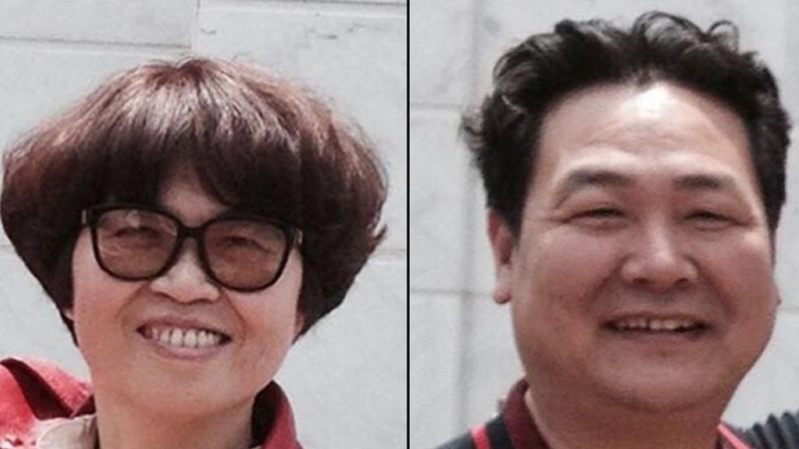
China's crack-down on state-approved churches continued last month with a harsh sentence given to a pastor of an official church in Zhejiang Province after he criticized authorities' demolition of church crosses.
Pastor Bao Guohua of Holy Love Christian Church in Jinhua received a sentence of 14 years in prison, and his wife Xing Wenxiang 12 years, after they were convicted of "corruption, financial crimes and gathering people to disturb social order," according to The New York Times, citing the Feb. 26 Zhejiang Daily, the province's official newspaper. Their son, Bao Chenxing, was handed a three-year prison sentence.
The three were arrested last August after they publicly criticized the Chinese Communist Party's (CCP's) policy of demolishing crosses on churches in Zhejiang; area Christians believe they are being persecuted for their protests. The court also reportedly ordered 600,000 renminbi (US$92,000) be confiscated from Bao, and that he pay a fine of $15,300; confiscation of $92,000 from his wife, and a fine of nearly $14,000, were also ordered.
Nine other members of the church staff were also reportedly convicted and received lesser sentences. The previous week, authorities detained 16 pastors in the greater Wenzhou area over the removal of crosses.
Bao is one of eight pastors of the official Three-Self Patriotic Movement (TSPM) churches detained. On Jan. 27, Gu Yuese, an official with the China Christian Council (CCC) and pastor of China's largest TSPM church, was arrested and is reportedly detained in a "black jail" on charges of corruption. Pastor of Chongyi Church in the Zhejiang capital, Hangzhou, Gu was detained after criticizing CCP policy in Zhejiang, where the government has demolished the crosses of some 1,800 churches.
The government has replaced the leadership at the Chongyi Church.
On Jan. 29, authorities also arrested on "corruption" charges CCC Chairman Li Guanzhong in Pujiang County, Zhejiang, who served as senior pastor of Puyang Christian Church in Jinhua. Li and his wife, Zhang Shuzhen, are also reportedly being held in a "black jail," where they have no access to legal representation. Li also had protested CCP demolition of crosses in the province, including his own church's, and had objected to TSPM churches flying the Chinese flag.
The government has also brought formal charges against nearly 20 human rights lawyers who had worked against the demolitions in the province, and authorities have broadcast coerced "confessions" from several of them. On Feb. 25, Christian attorney Zhang Kai appeared on state-run television to air what appeared to be a coerced confession.
After being held incommunicado in secret detention for six months, Zhang appeared underweight and hunched over in a black sweater to say that he had broken Chinese law, disrupted social order and endangered state security, the Globe and Mail reported. He also said that "foreign forces" had helped fund his work as part of a campaign to "smear" China.
Zhang, 37, has helped organized attorneys to defend some 100 churches.
"These acts violated the law of China and went against the code of lawyers," he said, adding that he had sought fame and money, according to the Globe and Mail.
Authorities seized Zhang in August shortly before he was to meet with U.S. State Department officials about religious freedom violations in China, according to the Times.
Zhang's on-air statements appeared to be scripted, and he appeared physically exhausted, a U.S. colleague said in a statement on Feb. 25. Purdue sociology professor and founding director of the university's Center on Religion and Chinese Society, Fenggang Yang, said Zhang was a visiting scholar at the center in 2013-2014.
"It is apparent that all Zhang Kai did was providing legal counsel to the willing churches, encouraging their leaders to use the existing law and regulations to defend their own rights," he said. "He urged both Christians and government officials to abide by the law and do not do anything beyond legal boundaries."
The few examples of evidences against Zhang shown in conjunction with the on-air "confession" appear to be dated before 2013, he said.
"Even if they were true documents, they have nothing to do with Zhang Kai's activities in Wenzhou between August 2014 and August 2015," the professor said. "I urge Wenzhou authorities to abide by the existing Chinese law and release Zhang Kai immediately."
Radio Free Asia reported that Zhang was unlikely to receive bail in spite of the "confession." His initial period of detention under "residential surveillance" had reached its six-month limit the previous week, and he is now criminally detained on suspicion of "disturbing public order" and "endangering state secrets."







